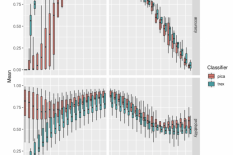News

New Version of PhenDB
New Version of PhenDB We are proud to present our updated version of PhenDB. While the frontend did not change that much, we added more functionality and up to date resources: Faster, more robust trait prediction PICA has been updated ...19.12.20News
Job submission interface ready to use
01.06.18NewsBesides phenotypic models and trait precalculations for NCBI RefSeq genomes, PhenDB also facilitates processing of user-specific data.
For this purpose, a job submission form is now available. It accepts archive files (e.g., .zip or .tar.gz), which contain genome sequences ...

NCBI RefSeq representative and reference genomes precalculated in PhenDB
24.05.18NewsPhenDB now contains in the "Browse" section the trait precalculations for the reference genomes and representative genomes in NCBI RefSeq.
The trait prediction results can be filtered by user-specific criteria for minimal prediction confidence and minimal balanced accuracy.
Three figures ...

PICA talk on ASM Microbe 2017 conference
PICA and the concept of phenotypic trait prediction for draft genomes will be presented in a Plenary Lecture on the ASM Microbe Conference 2017 in New Orleans. Don't miss it: June 2, 2017, 8:45 AM. 018. Understanding the Microbiome: Old ...02.06.17Event
